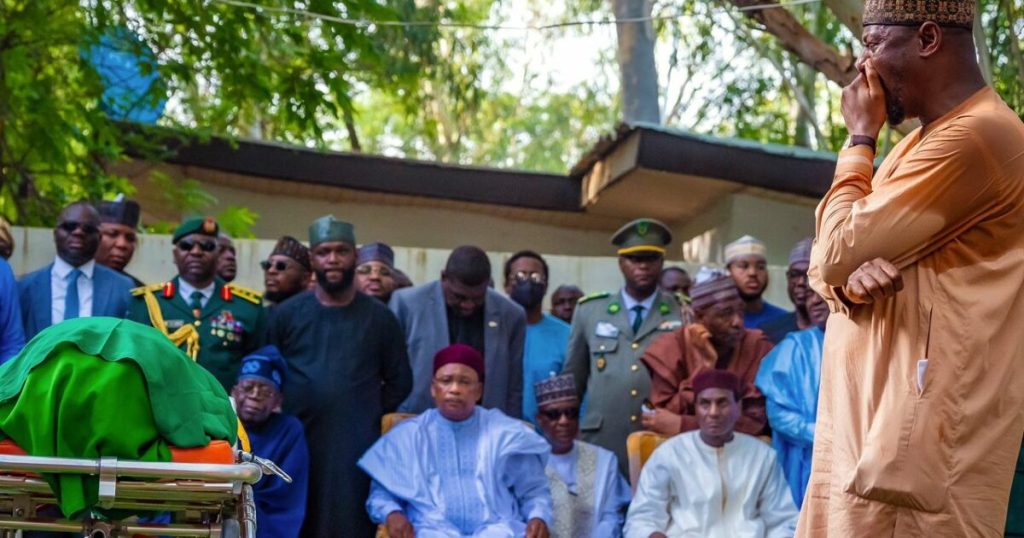The passing of former Nigerian President Muhammadu Buhari on Sunday, July 14, 2025, at the age of 82, marked the end of an era in Nigerian politics. Buhari, a towering figure who served as both a military head of state and a democratically elected president, breathed his last in a London clinic, leaving behind a legacy of service, stoicism, and a deep connection to his roots. His burial on Tuesday in his hometown of Daura, Katsina State, was a solemn affair, attended by dignitaries and mourners from across the nation and beyond. The emotional weight of the occasion was palpable, particularly for Katsina State Governor Dikko Radda, who was visibly overcome with grief as Buhari’s body was laid to rest.
The funeral proceedings, marked by Islamic rites, began with prayers at a helipad near Buhari’s Daura residence. Following the prayers, the former president’s remains were conveyed to a private garden within his compound, where he was interred. The choice of this final resting place underscored Buhari’s enduring attachment to his home and his desire for a simple, unostentatious farewell. The scene at the graveside was one of profound sorrow, with Governor Radda’s tears capturing the collective sense of loss felt by many Nigerians. Buhari’s passing resonated deeply, not merely due to his political stature but also because he represented, for many, the embodiment of the common man’s aspirations.
Governor Radda, in his tribute, described Buhari as a “father figure” whose footsteps he had strived to emulate. He emphasized Buhari’s unwavering connection to the people of Katsina State, from his early days as a military leader to his two terms as a civilian president. Radda highlighted Buhari’s consistent focus on the welfare of ordinary Nigerians, characterizing his legacy as one of “putting people first.” This people-centric approach, Radda asserted, would continue to inspire generations of future leaders. He acknowledged the immense void left by Buhari’s demise, recognizing the irreplaceable nature of the former president’s contribution to the nation.
Buhari’s journey through Nigerian politics was a complex and often controversial one. His initial rise to power through a military coup in 1983 was followed by a period of strict military rule, characterized by a strong anti-corruption stance and a focus on restoring discipline and order. After his removal from power in another coup in 1985, Buhari re-emerged on the political scene as a civilian, contesting presidential elections multiple times before finally securing victory in 2015. His presidency was marked by a renewed commitment to tackling corruption, fighting insurgency, and stabilizing the economy.
While his supporters lauded his integrity and resolve, critics pointed to what they perceived as authoritarian tendencies and a lack of sufficient progress on some key economic and social issues. Despite these criticisms, Buhari remained a significant figure in Nigerian politics, his influence extending far beyond his time in office. His passing sparked a national conversation about his legacy, with many acknowledging his contributions to the nation while also recognizing the complexities and challenges that defined his political career.
The outpouring of grief following Buhari’s death was a testament to the impact he had on the lives of many Nigerians. The image of Governor Radda weeping at the graveside captured the raw emotion of the moment, reflecting the sense of loss felt not just by those close to the former president, but also by countless citizens who saw him as a symbol of resilience, integrity, and a steadfast commitment to the nation. As Nigeria moves forward, Buhari’s legacy will undoubtedly continue to shape the political landscape, serving as both a reminder of the challenges faced and the progress achieved under his leadership. His story, from humble beginnings to the highest office in the land, will remain an integral part of the Nigerian narrative.


